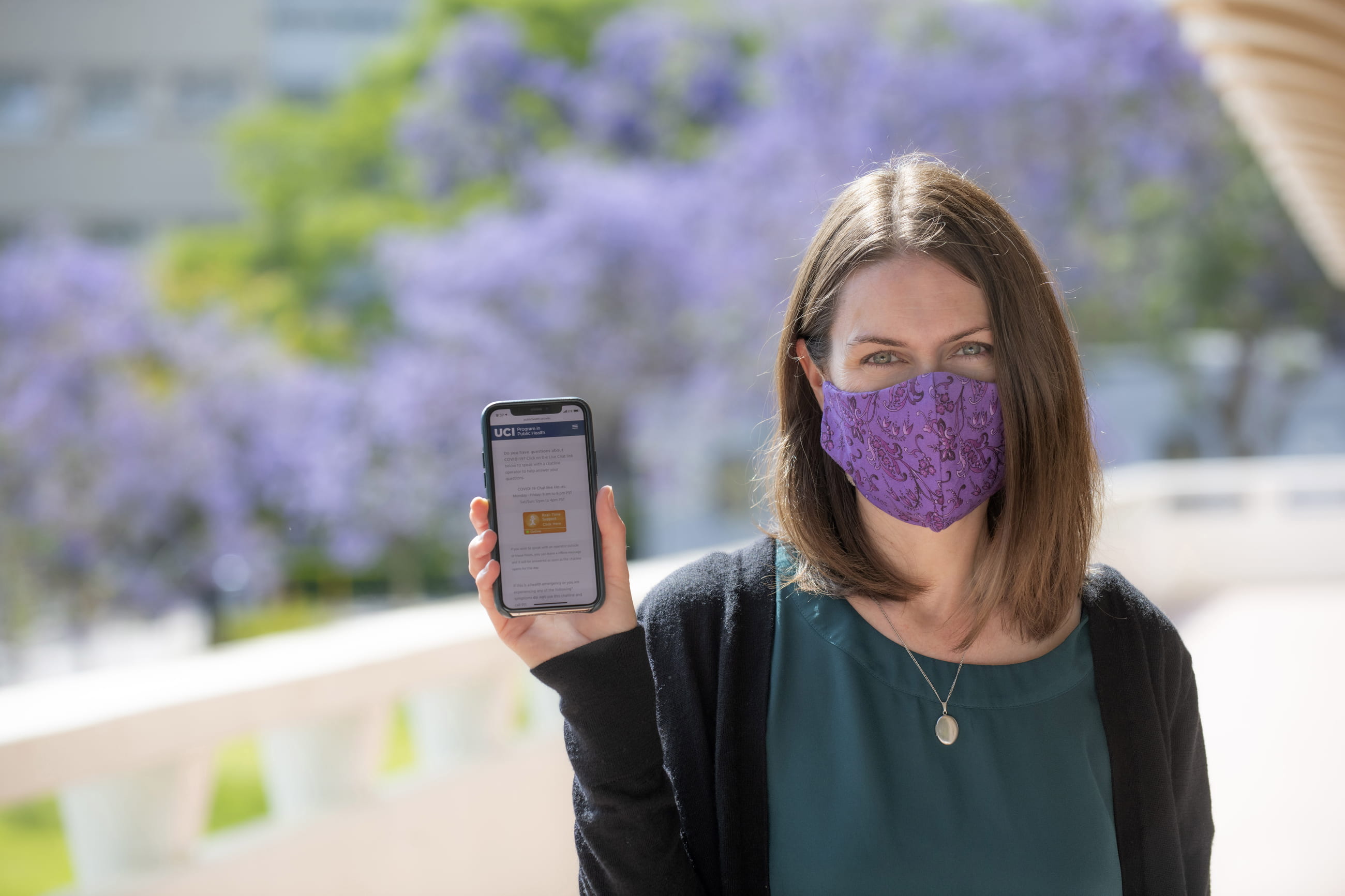COVID-19 chatline provides fact-based guidance
New UCI service is staffed by trained undergraduates in public health

How do I avoid getting COVID-19? Is it safe to go to the grocery store? What about exercising outdoors? Should I wear a mask?
Coronavirus guidance seems to shift daily, with the internet providing often-dubious advice. People seeking solid facts about the pandemic and how best to protect themselves and others sometimes don’t know where to turn.
“There is so much information out there, and unfortunately, not all of it is accurate. It can be hard to filter through it all to determine what’s true and what’s not,” says Miryha Gould Runnerstrom, an associate professor of teaching in UCI’s Program in Public Health.
“But those of us who work in public health are keeping up on the latest news and the most recent updates in the scientific literature. It’s our job to know what’s true and what’s false about the COVID-19 pandemic. We’re humbled and excited to be able to share that knowledge.”
To address the need for reliable information, UCI has launched the COVID-19 chatline, which allows individuals to communicate online and in real time with trained public health undergraduates and get links to relevant internet resources.
The service is for general questions, not specific clinical diagnoses. People who suspect they have COVID-19 should call their doctors – or 911 if the symptoms are severe.
Some of the most important information dispensed via the chatline is also the simplest: Take care of yourself. Practice social distancing. Wash your hands. These measures can significantly reduce the risk of infection.
“Our students are very practiced at dispelling myths,” says Runnerstrom, who played a key role in developing the chatline. “At the same time, the guidance on what’s open and what’s not, where testing sites are located, is changing every day. So we’re constantly updating our information.”
When the pandemic initially struck, public health professors needed to find a way for 150 undergraduates to complete their required practicum remotely. Some joined faculty labs. Some were placed with organizations. And 17 were selected to staff the COVID chatline.
They work seven to eight hours per week in staggered shifts. Two public health Ph.D. students trained the undergrads first on using the technology – which allows them to select predetermined answers – and then on how to respond to questions that depart from the norm. If staffers receive a query they don’t know the answer to, they can quickly ask professors and the doctoral students via a dedicated Slack channel.
The undergrads learn how to synthesize public health information and disseminate it to the public – experience they can put on their resumes when applying for jobs, says Sara Goodman, one of the Ph.D. students overseeing them.
“There is a great deal of misinformation about this virus, and we keep getting new information every day,” she says. “Sometimes wading through pages of guidance on the internet can be overwhelming, and the chatline allows people to ask questions and get answers and, hopefully, points them to the right resources.”
The service’s personal touch also helps the knowledge sink in.
“Information received from contact with a person, rather than a media source, has a direct impact on compliance,” says Shantell Nolen, the other doctoral student supervising the undergrads.
UCI’s COVID-19 chatline is staffed on Monday through Friday from 9 a.m. to 6 p.m. and on Saturday and Sunday from noon to 4 p.m.